Multi-talented artist vōx guides you through it all.
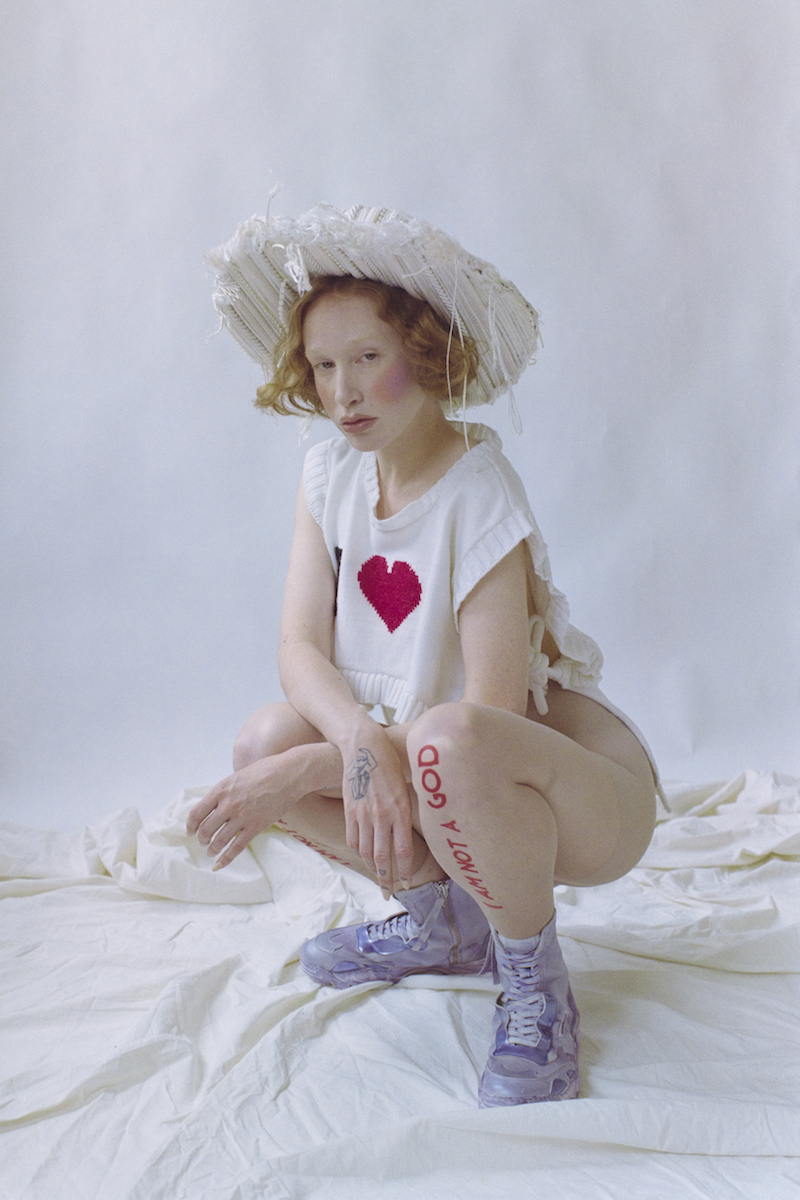
vōx (pronounced “wokes” and named after the Latin word for voice) is a day-one kind of artist. “I can’t remember a time when I wasn’t doing this,” she says when asked to pinpoint the birth of her writing. Her growing obsession with music—a palette of “a lot of weird stuff”, enriched by deep diving for new surprises on the web, as well as fortunate real-life discoveries (one such treasure being a Tori Amos cassette)—necessitated that teenage poetry morphed into lyrics, and the rest is history; her vox only grew from there. Today, the LA-based singer-songwriter bloodlets the anxieties of her intensely religious upbringing through music that is generously tender and ample with celestial intuition: “All of my best lyrics feel like they come from somewhere outside me, and I am just the vessel they come through.” Empowered by the “limitlessness” of fashion and nature, vōx invites you to worship at the altar of boundless self-acceptance. Her debut EP, “I Am Not A God”, traces the delicate experience of “coming to terms with my humanity and imperfections and finding that I’m enough. I can only do my best, but that effort in itself is worthy”. Amen to that!
You have previously spoken about the stifling environment of your religious upbringing—which is a big inspiration for this record as I understand—and how writing has helped you find your voice. When did you start writing? Do you recall any of your early songs?
I started writing poetry and stories very young. I can’t remember a time when I wasn’t doing this. As I became a teenager, my obsession with music grew, and with that I began turning the poetry into lyrics. I wrote all my early songs on the piano. They were very moody!
Describe your ideal environment for working on music, be it writing or composing?
My ideal environment is somewhere I feel safe, but that space must also have a strong energy. I need to feel like I’m free to make as much noise as I’d like, that no one will be listening to my experimentation. I’ve always been a very private songwriter.
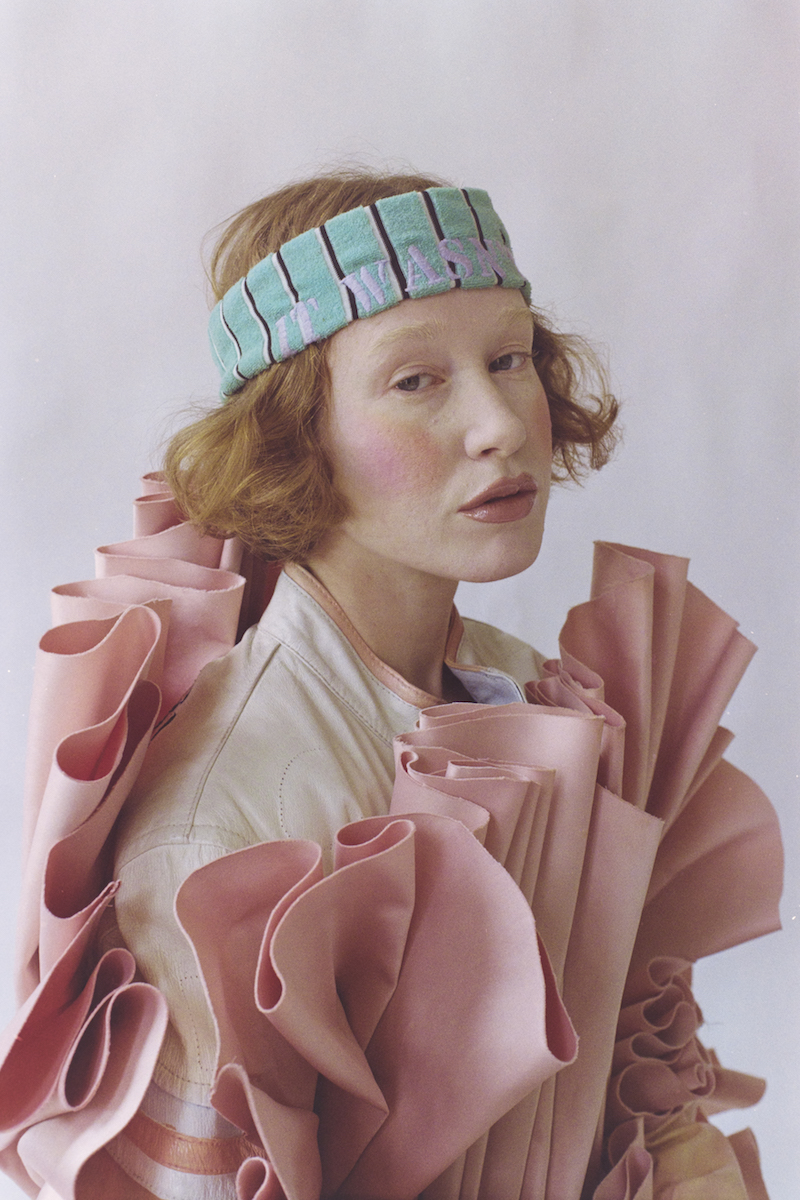
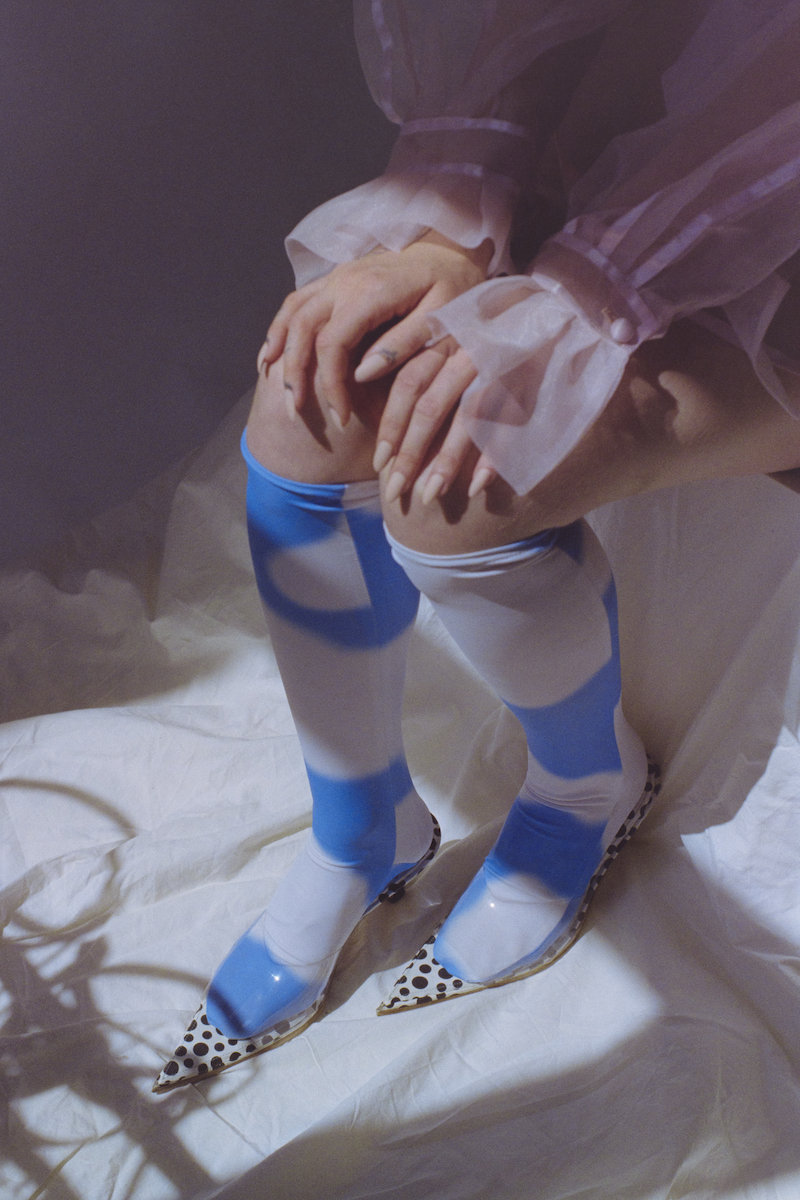
Tell us about the sonic environment of your youth: were you allowed secular music? What is your most memorable childhood encounter with music?
I listened to a lot of weird stuff, secular and otherwise. I spent a lot of time searching for new and surprising things on the internet. I remember being quite young and finding a Tori Amos cassette at a rummage sale with my mom. I liked the cover of it, so I bought it. The music was definitely way over my head at the time. I was confused but intrigued.
Your songwriting often recalls our humanity through admission of vulnerability, of not knowing … Could you tell us more about your new EP, “I Am Not A God”—what has the process been like for you, and what can we anticipate from this record?
A big process for me has just been getting closer to understanding what my emotions are and being able to talk about them. When I was younger, music was my only outlet for those feelings. I had no idea what they were. I had no idea how to name them. But my subconscious has always known, so I was able to express them through my lyrics. This record is very much about me coming to terms with my humanity and imperfections, and finding that I’m enough. I can only do my best, but that effort in itself is worthy.
It cannot be easy to always write from such a personal place, and then have to relive certain experiences through performance, or even just by hearing the song being played… Do you ever listen to your own music? How do these encounters make you feel?
I do sometimes go back to listen to my music. They often feel a bit surreal, like I have a hard time feeling it’s me who I’m listening to. When I have to play my music for others, my body gets incredibly tense. I can barely breathe or move until it’s over.
You are a big sartorialist, your image is just as carefully considered as your sonic output. When and how did you get into fashion? How do you build that side of your artistry?
I remember an obsession with fashion even when I was young. I kept myself quite removed from it for a long time though. I struggled with anorexia and body dysmorphia when I was younger, so I didn’t want anyone to take my picture. I didn’t want anyone to look at me. It’s still an everyday process to love myself, but fashion empowers me now. There’s a limitlessness to it. There’s a magic. I like to look at the visual side starting from the music. What story do I want to tell conceptually with the visuals that connects to the stories in the songs?
What is the best garment you own?
My current performance costume. It moves so beautifully, and it’s so empowering to wear. I worked with an incredible costume designer, Jessica Kao, and we connected it together. It was such a beautiful process to get to create something from my mind’s eye and bring it into reality.
In our latest issue, we explore the notion of the (para)normal as something everyday yet radical, a way to build up the self through rituals and intuition. What role does instinct play in your life and work?
My gut feelings are everything to me. Since I spent so long not consciously knowing what I was feeling, I’m very in tune with my intuition when it comes to creating. All of my best lyrics feel like they come from somewhere outside me, and I am just the vessel they come through.
Do you have any rituals that you regard as essential?
I’m especially attached to my nighttime self-care. I need to wash the day off, carefully choose my skin potions. I love to stretch at night. And right before bed is when I write my best lyrics, when I’m in that space between being awake and dreaming.
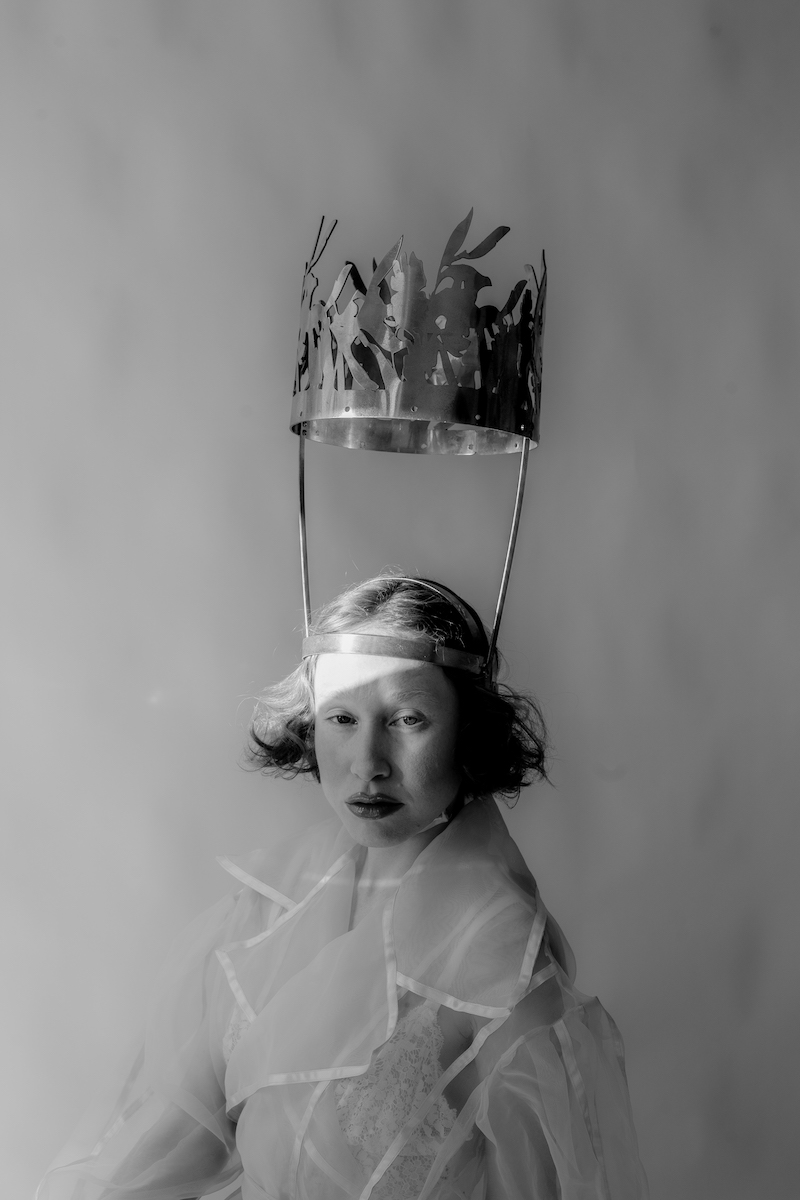
Would you consider yourself a spiritual person? How do you access spirituality outside of organized religion?
I find that nature is the best place for me to access my spirituality. I get that feeling of being small, that there’s something much bigger at play. I sink into the stillness. My mind is quiet.
Do you believe there is such a thing as sin?
I don’t like the word sin. It crawls on my skin just saying it. Attached to that word is a deep well of shame from my childhood. It was the source of all my unworthiness. My definition of sin now is going to be different in a lot of ways from the church. But yes, I do think there is sin in the sense that there are things that are inherently wrong. I think it’s sinful to harm any human or other living creature, whether that be taking a life, abuse, racism, rape.
What would be your advice for letting go of internalized shame—religious or otherwise—and opening up to the world?
I think the only way out is through unconditional self-love. The other thing that really helps me is remembering that it’s a process. There won’t be a day where I wake up and suddenly I’m healed, suddenly I love myself all the time, suddenly I only feel joy. Each day is a new day to put things into practice, to try to love myself unconditionally again. And that’s enough.
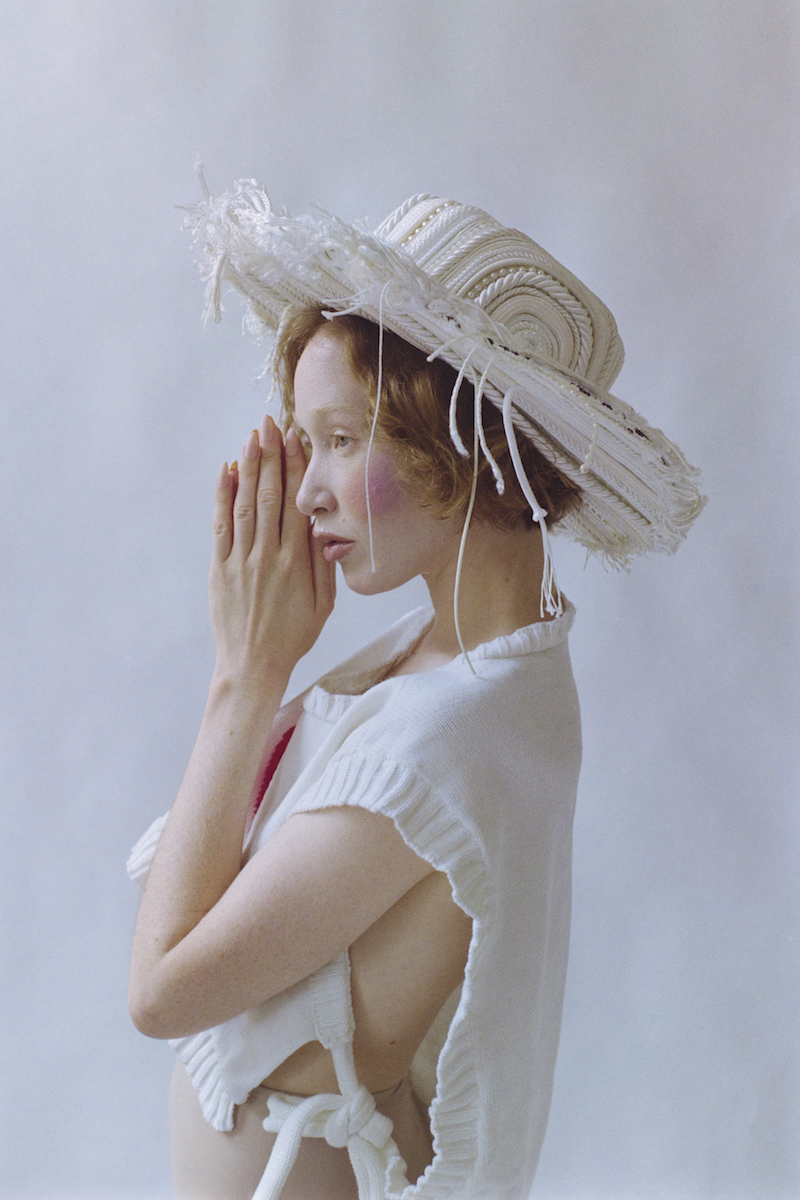
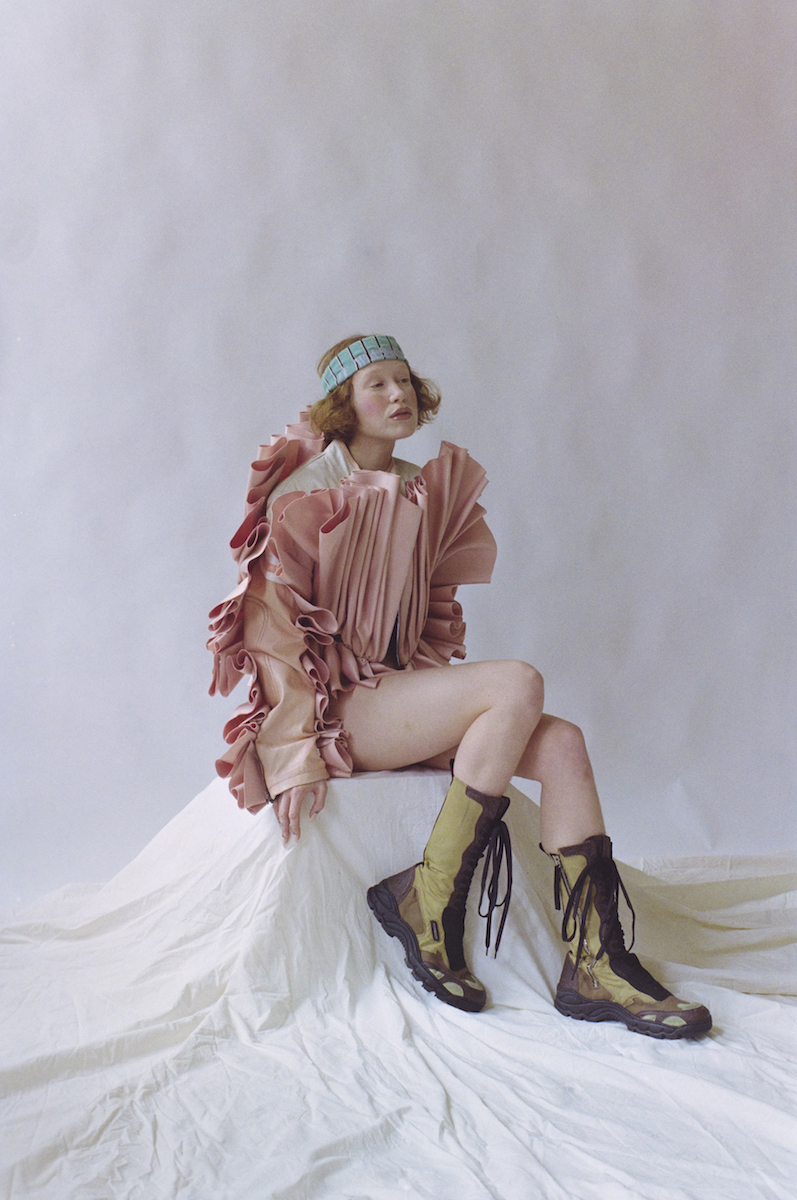
Notifications